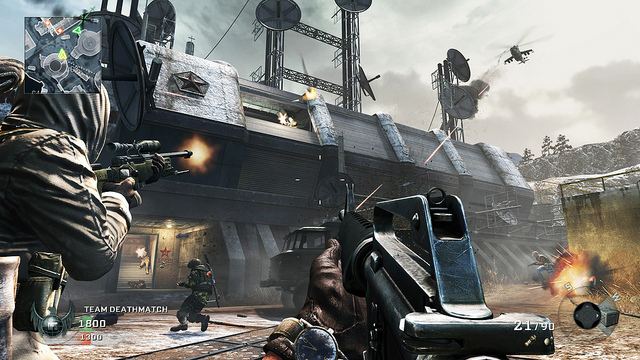You have no items in your cart. Want to get some nice things?
Go shopping
As a published writer of short stories, I’ve long been interested in teaching imaginative writing in schools. When I was training to be an English teacher there were some topics I felt wary of: grammar, poetry, the works of Shakespeare. These were all areas I wasn’t overly confident with; I knew I’d have to rely on planning and research to teach them effectively. Imaginative writing, however, was supposed to be my specialty. A doddle. It was something I had studied. Something I had practiced. Something I actively did myself. There was no doubt in my mind that my pupils would spawn insightful prose and chapter upon chapter of scintillating narrative while I sat in the corner, fingers steepled, silently smirking at the factory-line of writers I had moulded.
It has not worked out like that. The first challenge I’ve had to face is trying to unpack everything I know about writing and trying to quantify it in some way. I realised that I had actually internalised a lot of the things I do when writing, that I am not conscious of many of the techniques and strategies that I use. The other major obstacle is the pupils themselves and the manufactured environment of a fifty-five minute lesson. Personally, I am a binge writer. I go days and weeks without writing anything at all, and then I’ll spend hours spewing everything out onto a keyboard. If somebody sat me down four or five times a week and told me to write solidly, silently, for a set amount of time, I’d find it incredibly difficult. I’d complain. Find excuses. Procrastinate. Is it any wonder that teenagers do the same?
Raymond Soltysek’s paper ‘Wind them up, let them go: the primacy of stimulus in the classroom‘ articulates a lot of the concerns I have with teaching creative writing in schools. It discusses the importance of pupils researching their stories, being allowed thinking time, and getting an audience for their work. Overall, Soltysek’s arguments are excellent, but all the same, I take issue with one of his main tenets. He believes writers should “write a little, often”. He feels that young people should be allowed to spend a short time each day on writing projects — ten minutes at the start of a lesson, perhaps — and then they should move onto something else. Personally, I’d find this horribly frustrating. I would either sit staring blankly at the wall for ten minutes, or hit a rich seam of ideas and be cut short just as my momentum was building.
Soltysek correctly points out, however, that the writing process is not just about sitting at a desk. I only hammer away at a keyboard sporadically; for much of the rest of the time, I am writing in my head. I am working things out, developing characters, playing with dialogue. Perhaps I should go further and sketch these ideas down as they come to me, and maybe this is a skill worth instilling in young writers. My pupils have anxieties about imaginative writing, mainly centred around two problems: what to write about, and how to start — both perfectly valid concerns. So I always spend time with my students providing prompts and developing their ideas before asking them to put pen to paper. The Writing Prompts tumblr is an excellent resource which can be used with all ages.
Over the last year, I’ve noticed a strange trend for teenage writing that is clearly inspired by (or stolen from) video game narratives. This is storytelling medium which, admittedly, I know very little about, but I’ve marked stories set in war-torn bunkers, full of lurid descriptions of improbably-acronymed bazookas, dialogue delivered in clipped Hollywood soundbites, medical packs found in caves which immediately cure near-fatal injuries, anonymous bodies piling up which conveniently vanish from the landscape, and characters who display a complete lack of empathy or internal compulsion beyond some befuddled urge to reach the next level. What all these stories lack is a sense of authentic characterisation, and in my feedback I always ask my pupils to think about how their characters feel about their predicament. Do they have sympathy for the man whose head they have just turned into pixels? Do they miss family or friends from home? Do they have motivations, flaws, weaknesses? These things, for me, are where the story may be found. But teenagers all too often imagine that the story is created by exotic locations and the ever-more-sophisticated weaponry their characters wield.
When writing, teenagers seem to be obsessed with the small details. They can spend half an hour trying to think of a good name for their main character, and even a suitable date of birth. They genuinely believe this is crucial to the success of their story, despite being told that it is not. To show them, I usually use my own process as an example: when writing a story, I name my characters things like Hovis, Fanta, Cadbury, and so on in my first draft. Then, when the story’s taking shape, or is nearing the end, I’ll go back and fill these in with more suitable names. I encourage pupils to use stage names to kickstart their writing. The character’s name doesn’t matter; it’s what the character does and says that’s going to make the story worth reading.
Maybe I’m wrong, though. Maybe the names of characters, and weapons, and mythical creatures, and far-flung planets are more important to a story than I think. Nobody ever said there was only one way to write. I believe teenage writers should be free to express themselves however they wish. Perhaps if I listen more and explain myself better to them, we can find a quiet, productive no-man’s-land where we can meet and agree upon the same terms.
Still, these problems are all, of course, for us teachers to worry about. Teenagers who enjoy writing will always write, and those who have a talent for it will produce impressive work regardless of our meddling. Pupils under my guidance have written wonderful work, and there is nothing more satisfyingly galling than realising that a pupil has more natural talent than their teacher.
Subscribe to Litro Lab via itunes RSS | More

About N/A N/A
Alan Gillespie is 27 years old. He works as a teacher at a remote school in the West Highlands. His short stories are widely published.






Somehow, commenting seems like a more doable thing when I’m no longer the editor of Litro :)
When I was a teenager, I think I believed that it was the beauty of the prose, the descriptions, that would elevate my writing—even if it didn’t have the best storyline. Of course, I know different now—brought home to me, really, by an editor of an American online magazine I had submitted my story to (about my family’s experience of a South Korean winter to at the tender age of 16) who bothered to write me back with really useful feedback, telling me that my writing, though beautiful, wasn’t right for their magazine because it had too much of an “awe-struck” wonder to it.
I’ve enjoyed all your pieces about teaching teenagers literature here on Litro. They often remind me of my own very eccentric English teacher while I was at boarding school in an Australian suburb. Sometimes when prompting us for ideas she would lie flush across the tables in the front row (and she was very very tall) until one of us came up with something. I remember her absolutely fondly, and exchanged handwritten letters with her even after I had graduated, when I had moved to London.
I guess my point is, great teachers who love what they do really enrich a student’s life, and I can’t wait for your next column instalment!